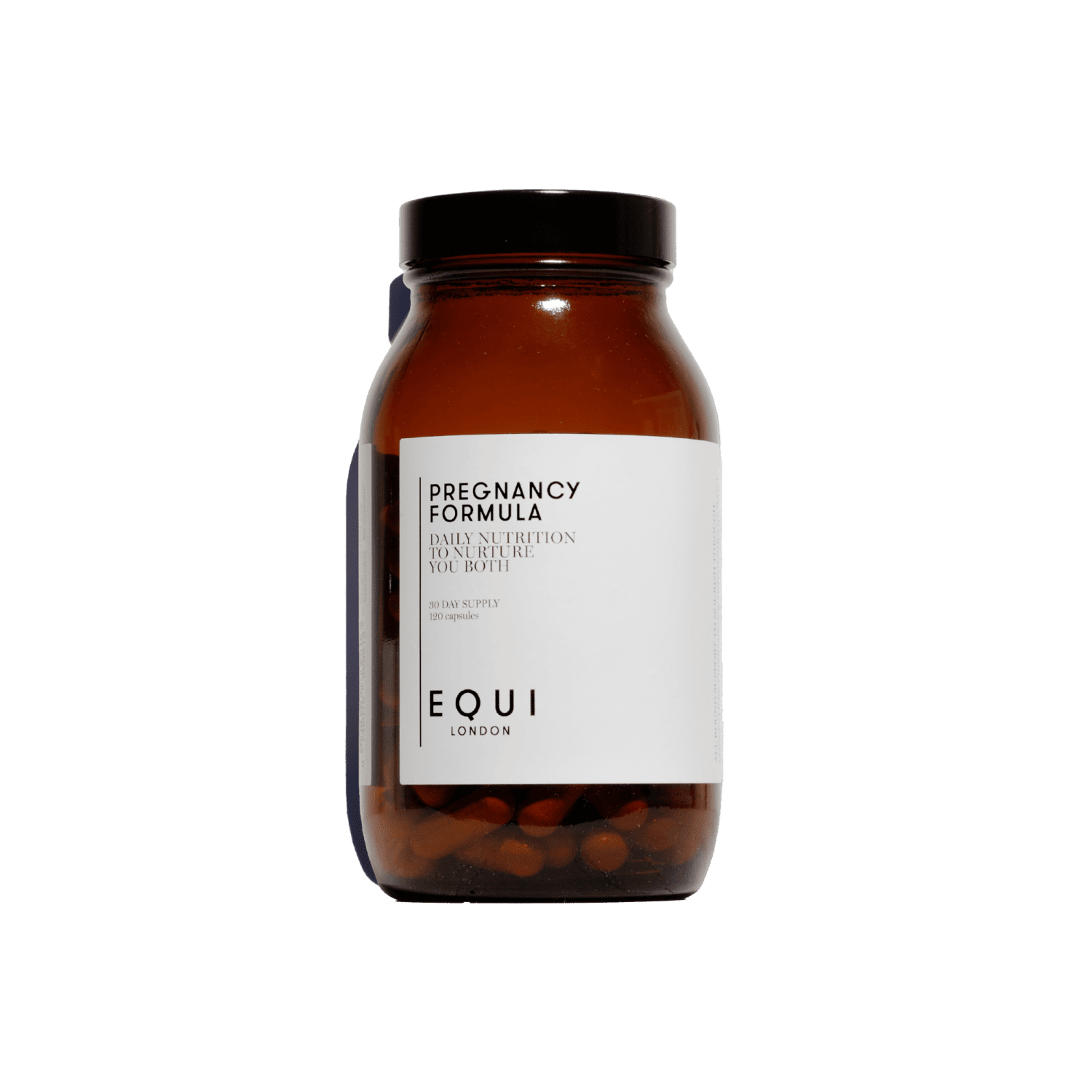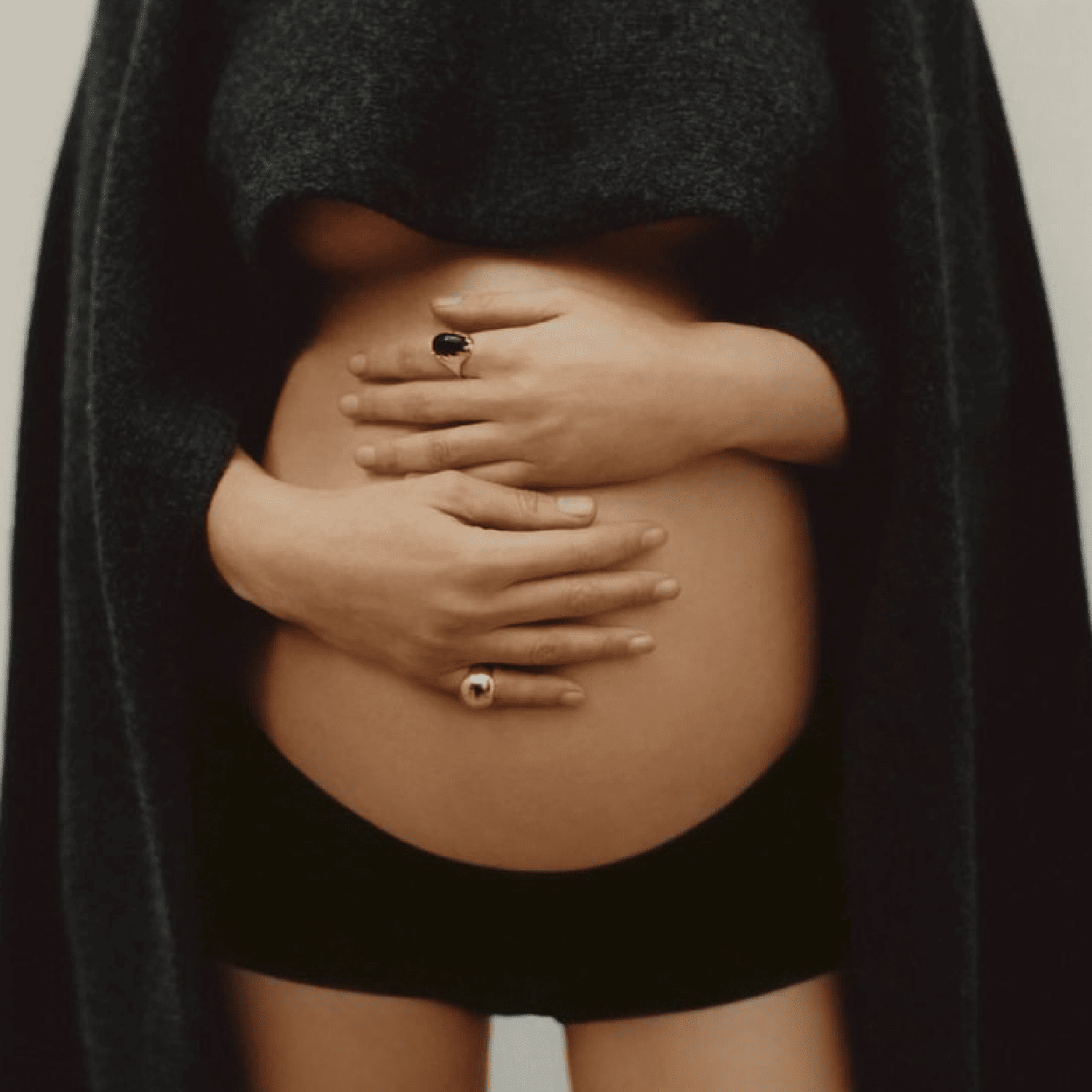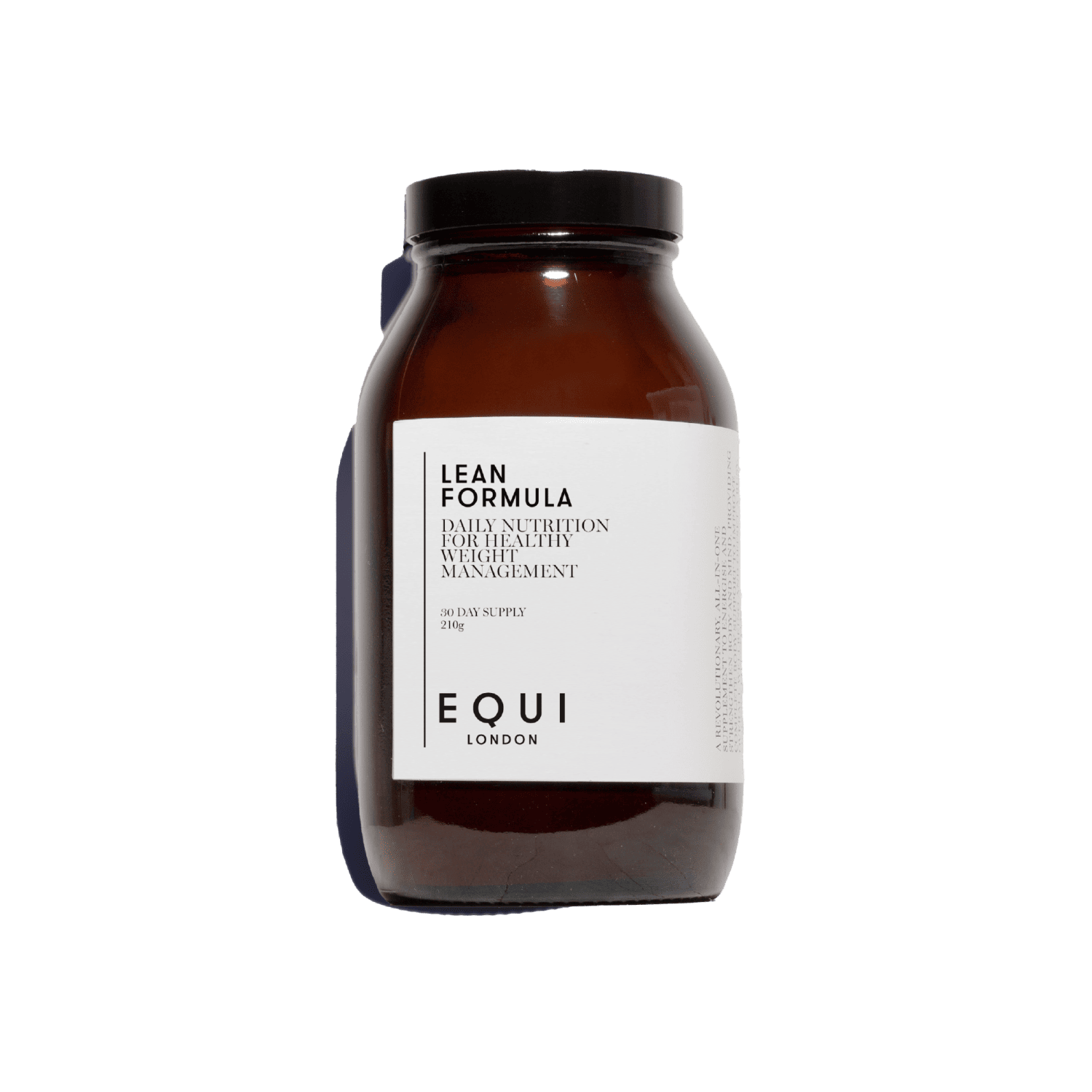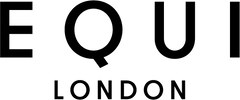
Welcome to your comprehensive guide to nourishing your hair from the inside out. Whether you've always coveted those glossy, picture-perfect tresses or are simply seeking solutions to tackle your hair woes, we have got you covered!
Our hair is often seen as an extension of our identity, a visible manifestation of our health, and an essential aspect of our self-expression. Regardless of the cut, colour, or style, we all crave for hair that feels strong, looks healthy, and shines with vitality. However, navigating the journey to optimal hair health can often feel overwhelming, with an avalanche of products and advice bombarding us at every turn.
This blog aims to simplify this journey for you. Here, we'll not only uncover the crucial role nutrition plays in maintaining hair health but also provide tangible tips and insights on how to effectively incorporate these nutrients in your diet. We'll delve into the science behind scalp health, a critical yet overlooked component of hair care. Additionally, we'll unravel the link between stress and hair health, providing you with strategies to manage stress and its impact on your tresses. And of course, we'll share some insider tips on hair care routines that can complement your nutritional efforts.
So, if you're in your 20’s, 30’s, 40's or beyond, and you're ready to embrace the most vibrant version of your hair, you're in the right place! Regardless of where you are on your hair health journey, this blog aims to empower you with the knowledge and tools to help you nourish, cherish, and celebrate your hair. Let's unlock the secrets to radiant hair!
Luscious Locks from the Inside Out
The foundation of luscious, shiny hair lies in our diet, with essential nutrients playing a significant role in maintaining hair health. So, let's delve into the critical vitamins, minerals, and nutrients that can help transform your tresses:
Protein
Protein, the building block of life, is the primary constituent of our hair. In fact, each strand of hair is composed mostly of a protein called keratin, making protein intake vital for hair health. According to a study, protein malnutrition, even in its mild forms, can negatively affect hair growth and may even lead to hair loss (1). This is because when the body is deprived of adequate intake, it might ration the available protein by shutting down hair growth, which is a non-essential body function. The role of protein in supporting hair health is not limited to keratin production alone. Amino acids, the building blocks of protein, also contribute to the production of red blood cells. These cells deliver oxygen and nutrients to all body cells, including hair follicles, promoting their growth and health. So, how can we ensure we're getting enough protein for our hair? By consuming both animal and plant sources like poultry, meat, fish, eggs, dairy, beans, and legumes, which are rich in protein. For those who may struggle to get enough protein from their diet, protein and collagen powders can be an effective way to increase their protein intake.
Biotin
Biotin, also known as Vitamin B7, is often hailed as the 'beauty vitamin' due to its essential role in maintaining healthy hair, skin, and nails. Biotin contributes to the production of keratin, the primary protein that makes up our hair. Biotin deficiencies have been linked with hair loss and brittle hair, while studies show us that supplementation may help improve hair health in those with a deficiency (2). Another study found that women with thinning hair experienced significant hair growth when supplementing with biotin compared to those who did not supplement (3). We’re sold!! Food sources rich in biotin include eggs, nuts, seeds, salmon, and avocados. However, for those struggling with hair health, a dedicated biotin supplement could offer a concentrated source of this vital nutrient. You’ll be pleased to hear that each Formula at Equi contains biotin, so whatever your current needs are you can be sure to have your hair needs covered!
Iron
Iron is a vital nutrient that plays a crucial role in our overall health, including the health of our hair. It aids in the production of DNA, including the DNA present in our hair follicles. Without adequate iron, our hair follicles might not function optimally, leading to hair loss or poor hair health. In a study researchers discovered a link between iron deficiency and hair loss, especially in women (4). Another study supports these findings, indicating that iron deficiency could be a significant cause of hair loss in women without systemic inflammation or other underlying disorders (5). Iron-rich foods include lean meats, beans, spinach, and fortified cereals. However, it’s crucial to remember that iron is best absorbed from food when it's consumed alongside Vitamin C-rich foods like bell peppers, broccoli, and strawberries. Since women are more at risk of low iron, we felt it was important to include iron in each Formula, with optimal levels included in Pregnancy Formula due to the increased demands of pregnancy.
Iodine
Iodine is a critical mineral that often doesn't receive the attention it deserves, particularly when it comes to hair health. The primary function of iodine in the body is to support thyroid function. The thyroid gland, situated in the neck, produces hormones that regulate several key bodily functions, including hair growth. Thyroid hormones directly affect hair follicles. Those with either hyperthyroidism (an overactive thyroid) or hypothyroidism (an underactive thyroid) may experience hair loss, indicating the importance of maintaining a balanced level of thyroid hormones in the body for optimal hair health (6). Iodine-rich foods include seaweed, dairy products, tuna, shrimp, and eggs. It's also available in supplemental form and is present in each Formula. In short, iodine is a crucial nutrient that supports hair health by maintaining optimal thyroid function, further underscoring the importance of a well-balanced, nutrient-rich diet for radiant hair.
Zinc
Zinc, an essential trace element, has been identified as a key player in hair growth and health. It's involved in various aspects of cellular metabolism, protein synthesis, and hormone regulation - all of which are important for healthy hair growth and repair. Deficiency in zinc has been linked with alopecia too, which is characterised by thinning hair. In fact, a study found that zinc levels were significantly lower in men and women experiencing hair loss (7). Another study on women with polycystic ovarian syndrome (PCOS) showed that hair thinning improved with zinc supplementation (8). Moreover, zinc also has anti-inflammatory properties, which might help soothe the scalp, reducing dandruff and other scalp conditions that could potentially harm the hair follicles, leading to hair loss (9). Including foods like meat, shellfish, lentils, cashews, pumpkin seeds, pine nuts, dairy, and eggs in your diet can ensure you get an adequate amount of zinc to support hair health.
Collagen
Collagen, an abundant protein in our body which declines with age, is widely recognised for its role in maintaining skin elasticity, but its benefits for hair health are equally compelling. It provides necessary amino acids that your body uses to build hair proteins, primarily keratin, which makes up the structure of the hair. Studies highlight that supplementation of collagen promotes hair growth in women with temporary hair thinning, significantly increasing the diameter of the hair strands (10). Supplementation has also been shown to enhance hair health and growth in women suffering from age-related hair thinning (11). Moreover, collagen possesses antioxidant properties that fight cell damage and slow greying! A study noted that free radicals could damage hair follicles, and antioxidants help in protecting from this damage (12). To harness collagen's benefits, consume bone broth, chicken skin, fish with skin, or consider collagen supplements, such as Beauty Formula.
Vitamin A
Vitamin A is a powerful nutrient known for its diverse roles in the body, including vision, immune function, and the health and integrity of skin and hair. The hair is one of the fastest-growing tissues in the human body, and like any rapidly growing tissue, it requires a substantial amount of nutrients, including vitamin A. Vitamin A also helps the skin glands to produce sebum, which moisturises the scalp and helps keep hair healthy and shiny. Research indicates that deficiencies in vitamin A can lead to hair loss (13). However, it's essential to understand that while vitamin A is necessary for hair growth, too much can also be detrimental. Overconsumption of vitamin A has also been linked to hair loss (14). Vitamin A-rich foods include sweet potatoes, carrots, spinach, and kale.
While a balanced diet is key, sometimes dietary intake may not suffice, especially with nutrient absorption issues or certain dietary restrictions. In such cases, supplements can fill nutritional gaps. Beauty Formula contains a blend of the most effective nutritional compounds proven to combat skin concerns, support collagen and hydration levels and strengthen hair and nails. We have included optimal levels of each of the essential nutrients to support radiant hair including biotin, iron, iodine, zinc, collagen, and vitamin A. So, if you are looking to support radiant hair, then look no further than Beauty Formula.
Omega-3
Omega-3 fatty acids, commonly found in fatty fish, flaxseeds, chia seeds, and walnuts, are important fats that provide numerous health benefits. Among them is their potential role in promoting hair health. For example, omega-3 fatty acids are known to support scalp health. A healthy scalp is the bedrock for healthy hair growth (more on this later!) and omega-3 fatty acids, specifically EPA and DHA, nourish the hair, support hair thickening and reduce inflammation that can lead to hair loss (15). If your diet lacks these fatty acids, your hair may become dry and brittle. Interestingly, a study found that women who had thinning hair reported significantly lower intakes and blood levels of omega-3 fatty acids (16). It’s clear that omega-3 fatty acids have a role in maintaining hair health and may be helpful for those of us dealing with hair thinning.
Beauty Oil Edition is the first beauty-specific omega 3 supplement, nature’s ultimate superfood for skin and hair. It contains 1000mg red krill oil per serving, providing over 200mg of essential omega 3 fatty acids with 120mg EPA and 56mg DHA. It’s a wonderful addition to Beauty Formula and together the two will work synergistically to help you achieve, glossy and radiant hair.
Always consult a healthcare professional or Nutritional Therapist before starting any new supplement regimen.
The Pillar of Hair Health: A Closer Look at the Scalp
The health of your scalp plays a vital role in the health of your hair. Much like a garden that needs nutrient-rich soil to produce vibrant plants, your hair also needs a healthy scalp to grow optimally. Beneath the skin of your scalp are tiny follicles - these are the roots from which your hair grows, and they require a clean, balanced environment to function well. One of the most critical factors in maintaining a healthy scalp is ensuring that it is properly moisturised. When your scalp is dry, it can cause dandruff, itching, and even hair loss. Studies highlight that a hydrated, balanced scalp is more likely to produce healthy, shiny hair (17). This is where some of the nutrients we have mentioned come in – for example omega-3 fatty acids. It’s also important to drink enough water to stay fully hydrated. Another important aspect of scalp health is dealing with common scalp conditions such as seborrheic dermatitis, psoriasis, and folliculitis, which can impact hair growth and overall hair health (18). Keeping the scalp clean, using appropriate hair care products, and maintaining a healthy diet rich in hair-healthy nutrients can contribute to a healthy scalp environment. Furthermore, head massages can also help by increasing blood flow to the scalp, bringing more nutrients and oxygen to the hair follicles, and promoting hair growth. This could be as simple as massaging hair products into your scalp to help stimulate the follicles.
Tress Stress: The Impact of Stress on Hair Health and Loss
Hair health is not just about what we put on our hair or consume in our diets - it's also deeply connected to our mental wellbeing. A growing body of research shows that chronic stress, both physical and psychological, can have a significant impact on hair health, including its growth and vitality. One common form of hair loss associated with severe stress is Telogen effluvium, where more hairs than usual prepare to fall out. This condition, often temporary, can be triggered by significant stressors, such as a serious illness, major surgery, or significant emotional stress. Stress also impacts hair by disrupting hormonal balance. Chronic stress can lead to dysregulation of the hypothalamic-pituitary-adrenal (HPA) axis, which can influence the hair cycle and induce hair loss, according to a study (19). So, how can we manage stress for better hair health? First, consider incorporating mindfulness techniques into your routine, such as meditation, yoga, or deep-breathing exercises. These practices have been shown to reduce stress levels and improve overall wellbeing (20). Physical activity can also be a stress-reliever and contributes to better overall health, which will inevitably reflect in the health of your hair. Make sure you also prioritise sleep, as lack of adequate sleep can contribute to increased stress levels. Remember, hair health is an inside-out process. Paying attention to your mental wellbeing and managing stress effectively can be just as crucial as your diet or haircare regimen for having healthy, vibrant hair.
Tips for Maintaining Strong, Shiny Hair
Taking care of your hair involves more than just choosing the right shampoo and conditioner. Adopting the correct hair care habits can make a significant difference in preserving and enhancing your hair’s health. So let's delve into some of these essential hair care habits. Firstly, brushing your hair is not merely about detangling it. The way you brush your hair can affect its strength and shine. Avoid harshly pulling your brush through knots and tangles, as this can lead to breakage. Instead, try brushing from the ends upward to detangle with minimal damage. Studies support the use of flexible bristle brushes to minimise hair damage during grooming (21). When it comes to styling tools, moderation is key. Regular use of hair dryers, curling irons, or straighteners can lead to heat damage, resulting in dryness and brittleness. Using a hairdryer at a distance of 15 cm with continuous motion causes less damage than drying hair close up and stationary (22). Choosing the right hair care products is another vital aspect of hair health. Avoid products with harsh chemicals, such as sulphates, that can strip your hair of its natural oils. Opt for products that contain natural ingredients and suit your hair type and its specific needs. Remember, your hair is as unique as you are, and knowing how to take care of it properly is an integral part of maintaining its health and vitality! As the saying goes, your hair is a crown you never take off, so take the time to care for it, and it will reward you with a vibrant shine that reflects your inner health.
References-
Gupta, M., Mahajan, V. K., Mehta, K. S., & Chauhan, P. S. (2017). Zinc therapy in dermatology: a review. Dermatology research and practice, 2014.
-
Patel DP, Swink SM, Castelo-Soccio L. (2017). A Review of the Use of Biotin for Hair Loss. Skin Appendage Disorders. 3(3):166-169.
-
Glynis A. (2012). A Double-blind, Placebo-controlled Study Evaluating the Efficacy of an Oral Supplement in Women with Self-perceived Thinning Hair. The Journal of Clinical and Aesthetic Dermatology. 5(11): 28–34.
-
Park SY, Na SY, Kim JH, Cho S, Lee JH. (2013). Iron plays a certain role in patterned hair loss. Journal of Korean Medical Science. 28(6):934-938.
-
Kantor J, Kessler LJ, Brooks DG, Cotsarelis G. (2003). Decreased serum ferritin is associated with alopecia in women. Journal of Investigative Dermatology. 121(5):985-8.
-
Vanderpump MP. (2007). The epidemiology of thyroid disease. British Medical Bulletin. 99:39-51.
-
Kil, M. S., Kim, C. W., & Kim, S. S. (2013). Analysis of serum zinc and copper concentrations in hair loss. Annals of Dermatology, 25(4), 405-409.
-
Jamilian, M., Foroozanfard, F., Rahmani, E., Talebi, M., Bahmani, F., & Asemi, Z. (2016). Effect of two different doses of vitamin D supplementation on metabolic profiles of insulin-resistant patients with polycystic ovary syndrome. Nutrients, 8(12), 822.
-
Skalnaya, M. G., & Skalny, A. V. (2018). Trace elements in human nutrition (IV). In Essential trace elements in human health (pp. 23-49). Springer, Cham.
-
Santilli, A., et al. (2021). Multi-Center, Double-Blind, Vehicle-Controlled Clinical Trial of an Advanced 2% Topical Minixidil Solution for the Treatment of Androgenetic Alopecia in Men. Clinical and Aesthetic Dermatology, 14(5), 37-42.
-
Ablon, G. (2015). A 3-Month, Randomized, Double-Blind, Placebo-Controlled Study Evaluating the Ability of an Extra-Strength Marine Protein Supplement to Promote Hair Growth and Decrease Shedding in Women with Self-Perceived Thinning Hair. Dermatology Research and Practice, 2015, 841570.
-
Trüeb, R.M. (2009). Oxidative stress in ageing of hair. International Journal of Trichology, 1(1), 6–14.
-
Everts, H. B. (2012). Endogenous retinoids in the hair follicle and sebaceous gland. Biochimica et Biophysica Acta (BBA) - Molecular and Cell Biology of Lipids, 1821(1), 222–229.
-
Finner, A. M. (2013). Nutrition and hair: deficiencies and supplements. Dermatologic clinics, 31(1), 167-172.
-
Le Floc'h, C., Cheniti, A., Connétable, S., Piccardi, N., Vincenzi, C., & Tosti, A. (2015). Effect of a nutritional supplement on hair loss in women. Journal of Cosmetology and Trichology.
-
Rushton, D. H., Norris, M. J., Dover, R., & Busuttil, N. (2002). Causes of hair loss and the developments in hair rejuvenation. International journal of cosmetic science, 24(1), 17-23.
-
Misery, L., et al. (2018). Sensitive scalp: does this condition exist? An epidemiological study. British Journal of Dermatology, 158(2), 287-292.
-
Borda, L.J., & Wikramanayake, T.C. (2015). Seborrheic Dermatitis and Dandruff: A Comprehensive Review. Journal of Dermatological Treatment, 26(6), 547-553.
-
Arck, P. C., et al. (2006). Toward a "free radical theory of graying": melanocyte apoptosis in the aging human hair follicle is an indicator of oxidative stress induced tissue damage. The FASEB Journal, 20(9), 1567-1569.
-
Pascoe, M.C., et al. (2017). The effects of exercise on mental health and quality of life in individuals with mental health disorders: A systematic review and meta-analysis. International Journal of Clinical Practice, 71(2), e12932.
-
Zhang, Y., et al. (2018). Comparing the effectiveness of flexible versus rigid bristle design in a detangling hairbrush. Journal of Cosmetic Science, 69(4), 241-250.
-
Lee, Y., et al. (2011). Hair shaft damage from heat and drying time of hair dryer. Journal of Cosmetic Science, 62(4), 405-415.




